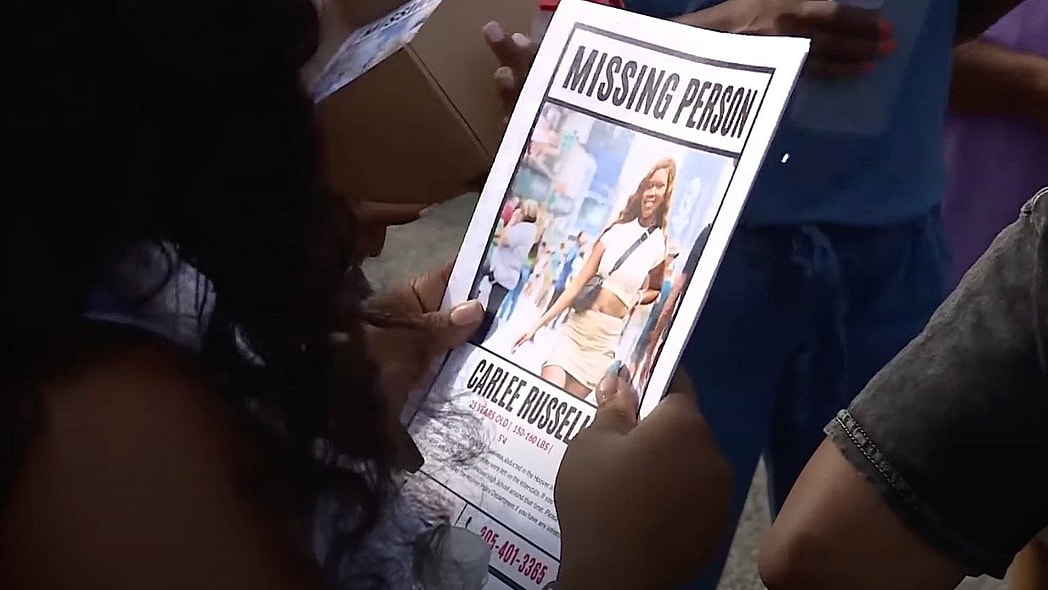Editor’s note: The following article is an op-ed, and the views expressed are the author’s own. Read more opinions on theGrio.
While we’re still waiting to hear the full story of what really happened during Carlee Russell’s disappearance, we’re all frustrated and disappointed with the recent developments in her case. I feel the pain, even on a greater level, as I’ve spent the last 15 years as co-founder of the Black and Missing Foundation, pounding the pavement with a goal — to make our missing Black and brown men, women and girls household names, too.
When I first started as a publicist for the families, it was extremely difficult to get the media to cover these cases. I can recall emailing and calling reporters numerous times only to be met with silence. Over time, I’ve been able to build relationships with media partners and land our missing on almost every major news outlet in the country. Yet, prior to Carlee, we never had a case go viral. Her disappearance catapulted missing women of color into the national spotlight and had people from all walks of life aiding in her search. We were so hopeful that we had turned another corner.
Over the years, we have seen firsthand how media coverage, law enforcement resources and community engagement can make all the difference in someone being found. It’s just that powerful! I will never forget our first interview on “The View.” Within 14 minutes of the segment airing, we received a tip that led directly to a teen who had been missing for months. Sadly, now that we finally have the first case to galvanize the nation around a missing Black woman, instead of setting a precedent that our missing loved ones matter too, it has set us back for our cases to be taken seriously and with urgency. What’s also disheartening is to hear people in our own community say they will never share missing person info again at a time when we have a staggering number of people who are still waiting to be found. Many people don’t realize that 40% of the missing population are people of color.
Where do we go from here? Are we going to let a singular case derail our efforts and stop the progress we’ve made? Not on our watch!
We can’t afford to turn a blind eye to other missing person cases. These are our children, mothers, fathers, sisters and brothers. If we don’t search for them or put pressure on the media and law enforcement to help find them, who will? If there is one thing that we have learned from all of this, is that when we come together as a community, we can ensure our missing loved ones get the attention they deserve. Every day, we have families turning to us for help. My heart breaks when I think of children like Arianna Fitts of San Francisco, who has been missing for seven years after her mom was found murdered. Let us not forget Keeshae Jacobs, Tiffany Foster, Alexis Ware, Joniah Walker, Jennifer Blackmon, Relisha Rudd, Nakyla Williams, and the list goes on. Ask yourself, do you know their names? Before you close your heart, I challenge you to learn more about their stories. Go to our website or listen to our podcast, “Untold Stories: Black and Missing.”
To date, the Black and Missing Foundation has helped bring home or closure to more than 400 families. We must channel our hurt, pain and disappointment into helping those who desperately still need our support. I can only imagine how many people we could bring home if we put this same energy into finding other missing people of color. We’ve proven that we have the power to make our cases go viral. Let’s build upon the momentum and the national platform we have at this moment to continue the movement to help us find us.

Natalie Wilson is the co-founder of the Black and Missing Foundation and a PR expert with more than 20 years of experience. She is also the founder of the boutique PR agency, NWR Comms Group. She is also a proud graduate of Howard University.
Editor’s note: The following article is an op-ed, and the views expressed are the author’s own. Read more opinions on theGrio.


